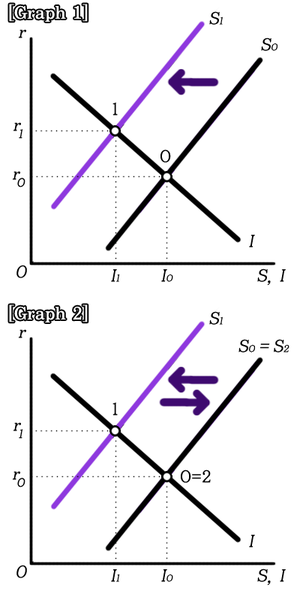This post is based on Guaranteed Income & Choose Your Boss (the market based safety-net) by (I think) Morgan Warstler. Like Jeff Graubart’s AFFEERCE, it is a variant on the Basic Income Guarantee (BIG) idea, of the “Faustian bargain” variety. The tone of the essay is considerably more politically conservative than Graubert’s, and the attempt (I’m assuming for now there’s a sincere attempt) to appeal to the left is more along the lines of “the leftists would be fools not to love this” than “the left inspired parts of this.” In the article, the plan is referred to as “GI,” and so that convention is reproduced here. The expression “30M” is used to denote the (supposedly) 30 million people whose market value is assumed to be below minimum wage. The proposal is explicitly market-based:
Herein, I’ll explain the way it works. There’s only one way it works. Deviations on the idea without the requirement to choose a job offer priced by someone else’s ROI… ruin it immediately.
So already we’re talking workfare. The following speculation as to its outcomes is offered for small comfort:
All GI recipients are free to market themselves for whatever they prefer to do for work, but they must choose from hundreds of jobs being offered to them each week. If you don’t choose a job and work, you don’t get your GI.
In the actually-existing economy, people have (in theory) hundreds of jobs to choose from. The problem is that if you want out of one employer because they assault your dignity with piss-tests, personality tests, polygraph examinations, off-the-clock work, performance improvement plans or any of a number of other entrepreneurial strategies based on driving a harder bargain toward labor, the relevant question is not how many other employers are out there, but whether at least one exists with decidedly different business practices. Does GI mean better choices, or just more choices?
Like Bleeding Heart Libertarianism (BHL), the core tenets of GI seem to be those of laissez-faire capitalism (LFC). Also like BHL, GI is considerably more open to relaxing the “thou shalt not subsidize” tenet of LFC than the “thou shalt not distort price signals” tenet.
The underlying assumptions
- Greed is assumed to be a feature, not a bug.
- “The goal here is to put the greed of private bidders to work to quickly identify which of the 30M are best at the jobs they are happily put [to].”
- Public sector jobs are less real than private sector ones.
- Organized labor (or as I say, “the labor movement”) is assumed to be obsolete:
- “Progressives should understand that having a choice of jobs profoundly changes the power structure without having to organize labor.” Note the tone, also. It could have been phrased “without labor having to organize,” but instead is phrased in a way that assumes a passive role for workers and basically implies the right wing canard about “union bosses.” “This is the neoprogressive labor moment.” If neoprogressive is to progressive as neoliberal is to liberal, I want no part in it.
- The Protestant work ethic is a good thing, and idle hands are a bad thing.
- European approaches to social problems are not right for America:
- “It is a profoundly American way to extend the social safety net, without becoming France or pretending we’re all as innately chummy as the “you look like me” Nordics.” I try and I try to find explanations other than racism for belief that a “homogenous” society is a prerequisite for social democracy. Alternative explanations simply require too much suspension of disbelief on my part. Just sayin’
- Criminal laziness is a thing
The tone of the presentation
- “Good yet marginal workers now have many, many choices, where their own happiness is given much greater weight without ANY technocrat’s big agenda.”
- Characterization of some workers as marginal is insulting. Look at it this way: Some blog authors are marginal. Typical symptoms are sloppy spelling and punctuation. Use of a blogging platform that is very “slick” and high-bandwidth (let alone posting at content farms such as medium.com) of course increases the level of tackiness of a blog by a marginal blogger.
- “This isn’t about just the 30M. This is about how you and I become more productive when we can use the 30M to accomplish more ourselves, and what those we work for can do with our new productivity.”
- Implication: The intended audience (you and I) are not the underclass, but middle class people who can suddenly have hired help at third world rates.
- I think the inclusion of this graphic in the essay pretty much sums up what set of attitudes produced this dubious idea called GI:

What’s in it for left and right
| What’s in it for the left |
What’s in it for the right |
- Fortune 1000 excluded.
- Employers must…establish their real identity and deposit money into system before they bid.
- Employers must accurately describe the job (check boxes) and cannot add to it after winning bid or require work not checked.
- Feedback will be given both ways. If you are familiar with Ebay buyer / seller feedback, you understand what this accomplishes.
- “The goal is Internet transparency.”
- “[The scumbag slave labor bosses] are quickly exposed. No one sells their labor to them. Your real name. Your real reputation. If you want to get “subsidized” labor, you better keep most of your hires happy.”
|
- There are no taxes paid by employer or employee.
- “Upon meeting some fair criteria, the criminally lazy [sic] can be suspended from GI program.”
- “I am proposing Internet based #Distributism.”
- Use of Heritage Foundation research as source for information on “welfare” spending.
- “While the govt. can’t bid it can now hire low cost services organized by SMB that hire from this pool. Suddenly the cost of public goods (clean parks, subways, etc) drops dramatically – making the cost of LOCAL GOVT. cheaper. This alone likely covers the total expenditure.”
- “If you are working for a boss who thinks you are worth the market rate, we’ll cover your nut. Otherwise, you are in trouble.”
- States’ rights: “I don’t have an answer for I hired her to grow my pot in Colorado, nor I hired him to sleep with me in Nevada; except that states should really be the ones running this thing.”
- “The cold brutal fact is many Americans aren’t worth what social justice crusaders are forced to pretend. They have to stop pretending.” I’ll tell you what: I’ll concede your point (that the market value of workers isn’t necessarily enough to support socially just outcomes such as meeting the cost of living) if you’ll concede that it’s a cold brutal fact that a civilization which is not economically viable for essentially 100% of its population (a society in which existence/independence/solvency is a hard-to-attain privilege) is inherently unstable and deservedly so.
|
My take on this.
Generally speaking, I don’t like it. As an anagorist, I hold out hope for a non-market society. GI, like BHL, seems to be an attempt to put to rest forever any hopes of moving beyond the market paradigm. Would it serve my personal interests better than the status quo? If it worked as advertised, maybe. If not, I’d probably fare worse. I’m confident enough that I’d be in no danger of being branded “criminally lazy,” but based on my earnings and “career” advancement history so far, I’m far from confident that I’d be able to graduate from the 30M to the unsubsidized workforce. I’m very worried that failure in that would carry a stigma in a society in which GI is implemented. This is of course a social rather than economic question, but “physics envy” aside, I view sociology as equally important as economics. The law of sociology that says “no justice no peace” is as empirically valid a law of science (and therefore equally non-negotiable) as the law of economics that says “no such thing as a free lunch.” The bait is sombunall (some but not all) of the advertised features of BIG/UBI, such as the luxury of creative pursuits without independent wealth, the claim of a more informationally empowered workforce with more leverage and more choices, at least concerning the qualitative aspects of jobs, a lower threshold of value-added potential needed to ensure employability, etc. The hook is acceptance without question of market signals, particularly offers of other people’s money being an absolute prerequisite for employability at even the lowest pay grade. Ultimately, employers hold veto power. Supposedly it takes a much larger number of employers effectively to blackball a person from participation in the economy, and supposedly the transparency of the reputation system is enough to ensure that no one would face that fate unfairly, but still, buyers over sellers is ultimately the chain of command.
Ultimately, GI is not at peace with non-market approaches, and is proposed more as a permanent program than an incremental reform, and so I am not at peace with whatever movement or other political clout might some day form around GI. Are there things that could make GI less unpalatable to me? Yes:
- Don’t make PayPal the official vendor for card operations. PayPal is a name I associate with murky and deeply authoritarian agendas such as charter cities in post-coup Honduras and Military Industrial Complex entities such as Palantir. Card operations, like reputation metrics operations, should be open source. Perhaps I misparsed the following sentence: Using Paypal and an OPEN SOURCE Monster.com style platform. I would like both to be open source, not only in the sense of running open source software, but in having open access data as a default assumption, with any exceptions to that principle being in service to personal privacy, and not to business confidentiality, or making the algorithm operate as a black box designed perhaps to produce intelligent or optimal outputs “as if by magic.” Perhaps card operations can be an open platform open to multiple vendors of consumers’ individual choices. If there is to be one official card, I’d be most at peace with the one that the #Occupy movement is working on.
- Moving specifically to the open source version of monster.com—in addition to the requirements that employers provide proof of identity (hopefully not just to the system but to the users of the system and ultimately the public) and accurate job descriptions, I would lobby for a stipulation that participation in the artificially cheap (from the employer side) labor market requires ALL employment openings in a participating company be posted in the database. No “unadvertised job openings.” This, I think, would do far more to prevent nepotism (and its virtual equivalent, the disgusting necessity of “networking”) than even draconian enforcement of the proposed “no relatives/cohabitants” rule.
- The idea of subsidy money as a sort of a payroll multiplier enabling some entities to obtain labor at a cost to them that is below minimum wage has a precedent in the United States in the Work Study program, in which I once participated. When I was in school eligible employers were generally either in the public or nonprofit sectors. In practice these were mostly on-campus jobs, as the college is typically by far the largest nonprofit organization in a typical college town. I helped digitize the library catalog, work which assists the work of researchers to this day. The long string of temp-agency jobs I did for numerous years after graduation were less fulfilling to me, and I would venture to say, less useful to society. For example, I don’t think of maintaining junk mail lists as a service to society—if anything it is a disservice! I understand that the underlying assumptions behind GI are basically right wing concepts such as wealth creation being a prerequisite for having the funding to implement GI in the first place, so the emphasis seems to be on small for-profit businesses, and individuals looking to hire labor. I would be more comfortable with the program if employer eligibility for subsidized labor rates were based less on business size (note that I’m already sick of the right’s “it’s really corporatism you’re against” trope) and more on, if not non-profit status, at least some kind of involvement in the “greater good,” which might be anything from the opportunity to work for a B-corporation, to the opportunity to work with open source (or better yet, nonproprietary) technology, to the opportunity to provide services which would be unprofitable in the status quo for-profit sector, such as labor intensive professional level services (basically the “cost disease” ones such as education and health care) for people who can’t actually afford them.
- The employee-on-employer reputation metrics are implemented in a way that forbids “non-disparagement clauses” on the part of employers. People (and businesses) must be held accountable for statements, of course, but that is for third parties to determine, not for gag orders to prevent.
I’ll never give up my post-market dreams, but I could be a happy enough camper to commit to non-revolutionary anagorism if it turns out that GI affords me the following luxuries:
- I can blog my real opinions under my real name and “get away with it,” which is to say, remain employable.
- While I can be happy without achieving a high-status job or a job that requires highly developed skills, I cannot be happy with an employer who infantilizes me, who operates with the default assumption that a low-status or low-skill employee is untrustworthy, uncouth, un-sober, or otherwise clueless as to basic workplace decency, as evidenced by the execrable pre-employment “personality tests” that have become ubiquitous in the retail/restaurant employment ghetto.
- Speaking of ghettos, while I appreciate that GI claims to make low-income neighborhoods more liveable (although I find the “cleaning up” phrasing of that somewhat jarring) I’d like to believe that no one will be so poor so as not to have multiple housing options, including the opportunity to move long distances on their own (as opposed to employer’s) initiative.
- Social exclusion or discrimination based on GI vs. “real economy” status is largely non-existent, or at least non-consequential.
One point of skepticism: If Walmart is expected to automate its stores completely, and services to government are to be supplied by GI-participating contractors instead of civil servants, the resulting layoffs add to the 30M (30 million) possibly unable to hold their own in the unsubsidized economy.






